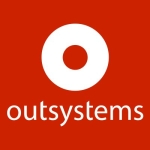What is most valuable?
I'm the unit manager of the network operations center so I'm a core user of the tool. I don't get involved in the development, deployment or support of it, but we get a lot of tickets in the network operations center. I think probably some of the best things the tool brings to us revolve around the ability to manage all of our work. The intake of the work, tracking it and helping it move through the different processes so tracking incidents, then times they turn into a problem that we have to follow up and come up with a root cause.
For me as the manager of the network operations center, it's mainly around being able to track our work, know who is working on what, what our work volume is, how it ties to the different services that we support.
The reporting is one piece that's a lot of interest to me in the network operations center. We don't have a ton of metrics today mainly because we haven't put the effort in that direction, but we want to. I poked around on the reporting a little bit and I went to a session [at Knowledge16] on performance analytics. I thought, gee this looks like what I'm after but we have yet to purchase that module. I don't know if we will or won't so I guess I don't have enough experience to say. I see the potential there.
How has it helped my organization?
I think it's bringing a lot of stuff that's been handled by a lot of different applications and a lot of different areas in one place. We grew up with a few different areas which had their own tools for a long time for ticketing and managing assets. Basically bringing it all into one place I think is very beneficial.
What needs improvement?
I would say there really isn't anything I found that I really dislike. Now the caveat to that statement is we've been going at the deployment for a while. Again, I'm the user, the consumer side of the tool. What I'm waiting and watching to see is, as these new modules roll out, as we implement change and knowledge base, I've got myself and my group, we've got a lot of work to do yet just to learn the tool as it is today. We haven't really gotten into it far enough to say, "Gee I really don't like this."
The sense I get just from some of the classes that I've taken where I've been poking around in some of the tools that we don't have yet, I do see there's definitely a learning curve involved. Now I look at it like there's a learning curve involved in any new tool you bring into your organization. I think the overall pain of the learning curve maybe less when you have a common tool like the ServiceNow. If I get over the learning curve for problem management, for example, I'm probably halfway there with change, incident and the rest of them. A lot of things you're going to learn and want are applicable together. I think overall the total learning curve will probably be less.
What do I think about the stability of the solution?
I haven't had any issues. As a matter of fact since we've been using it, I can't think of one time where it was unavailable or had an issue. I haven't seen that as an issue from an end user perspective. I have it up periodically. The folks in my unit have it up all the time to monitor the queues and I haven't heard any issues with it.
What do I think about the scalability of the solution?
I really haven't been involved in that side of it, we're the development side. From an end user, I think just as I've watched them enable more modules, bring on more things, I haven't noticed any kinds of performance issues.
Which solution did I use previously and why did I switch?
We used BMC Remedy for ticketing system. We never really had a CMDB as we had various databases that housed different information so BMC Remedy, is the main one that comes to mind that we used prior to ServiceNow, that we'll be sun setting. We actually had some in-house tools as well that we developed.
We did so to manage things like our change records and actually that really was the formal IT CMDB if you will. We had some home-grown tools as well that we're working on sun setting.
What's my experience with pricing, setup cost, and licensing?
There's another group in our organization that's responsible for the purchasing decisions. One of the things I heard that was maybe of concern to me, is that we had our in-house system that we used to communicate to our end user groups around change. I have some concerns about the ability in ServiceNow and the capability to notify end users of changes. I think if I was not mistaken that's in part due to licencing. We have about two thousand IT people versus total of about sixty thousand employees.
I believe there was a licencing cost issue around if I want all those people to be able to subscribe to change notifications. I don't quite understand how that works fully but I get the sense that there was maybe some cost challenges with that. From an end user perspective and the network operations center, we make a lot of changes that have the potential impact, large geographical areas and try to figure out how do to notify our end users. That's what I don't really know yet, how that ServiceNow tool is going to help us do that. We're still trying to figure that piece out.
What other advice do I have?
One piece of advice I would give you from my perspective is that if you're going to deploy it, make sure you put the appropriate amount of effort into training the end users. I think there is some complexity learning how to navigate it and I think for a lot of people having a document to follow is challenging sometimes. Make sure you put the appropriate amount of emphasis on training. I've been in IT for about 26 years, I've seen a lot of this stuff grow up in pieces.
It's filling a niche I think a lot of people have really, really wanted which is bringing a lot of this information into one central location. The various areas of IT can no longer operate in a vacuum, it has to operate as one large cohesive IT department that aligns with the business. I think a tool like this helps bring a lot of that stuff into one place.
Disclosure: My company does not have a business relationship with this vendor other than being a customer.



















Hi Jorge,
We appreciate the review, thank you. Let us know if we can be of assistance.